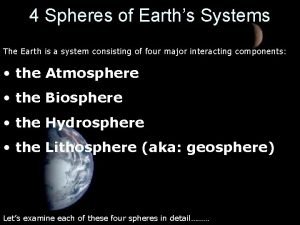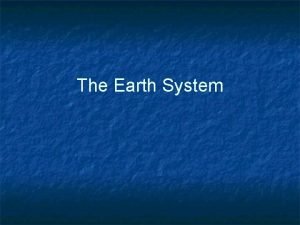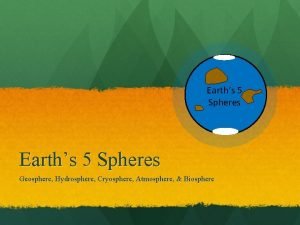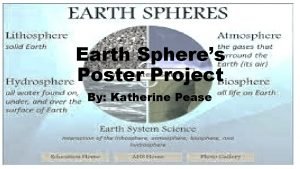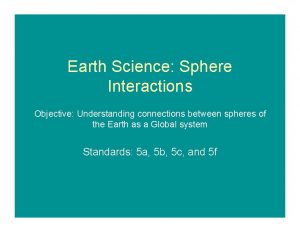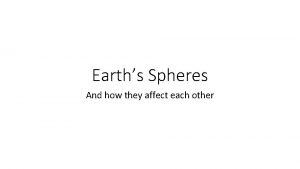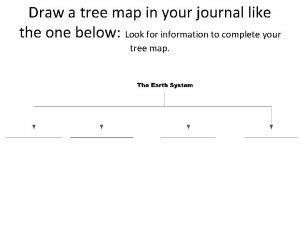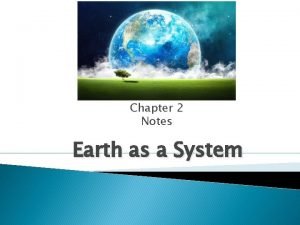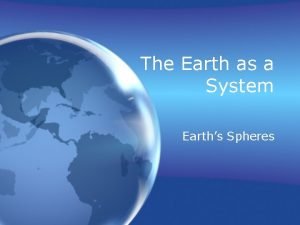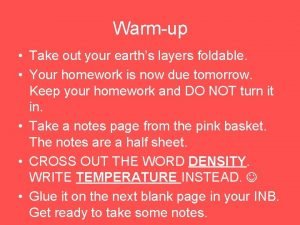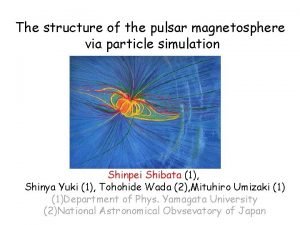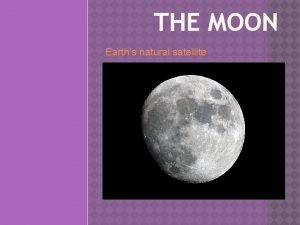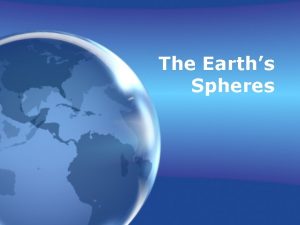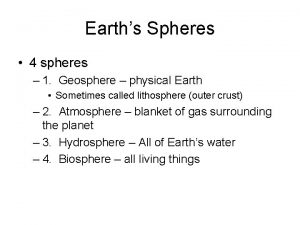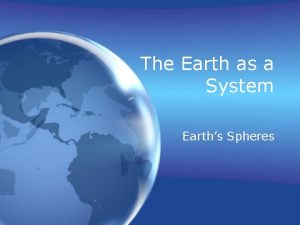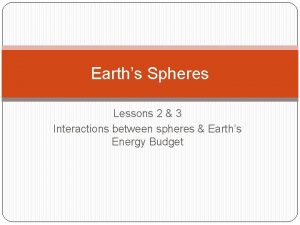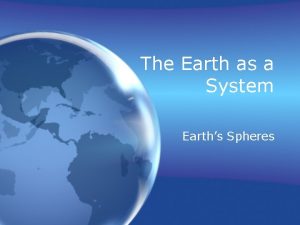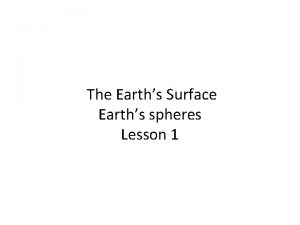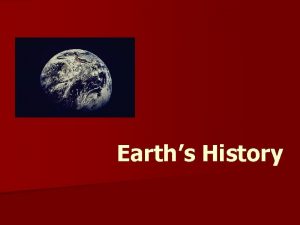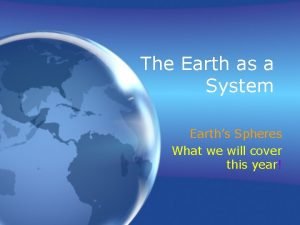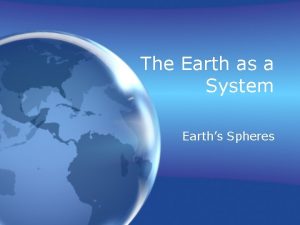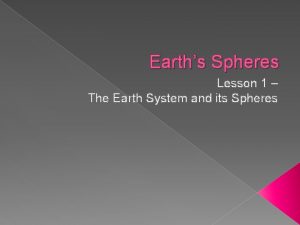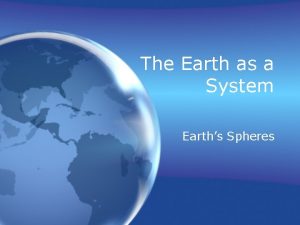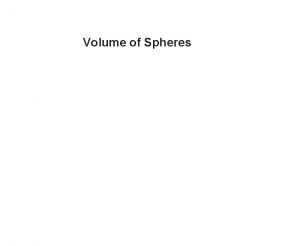THE EARTH AS A SYSTEM Earths Spheres Earth















- Slides: 15

THE EARTH AS A SYSTEM Earth’s Spheres

Earth System Science (ESS) The study of the interactions between and among events and Earth’s spheres A relatively new science (1988)

Earth’s Spheres Atmosphere Hydrosphere Lithosphere Biosphere • Cryosphere • Anthrosphere

Atmosphere A gaseous sphere and it envelopes the Earth, Consists of a mixture of gases composed primarily of nitrogen, oxygen, carbon dioxide, and water vapor.

Hydrosphere All of the water on Earth 71% of the earth is covered by water and only 29% is terra firma

Lithosphere The Earth's solid surface, often called the crust of the earth. It includes continental and oceanic crust as well as the various layers of the Earth's interior.

Biosphere All life on earth, including man, and all organisms. The life zone on our planet distinguishes our planet from the others in the solar system. Know as the “Life Layer”

Cryosphere The portion of the Earth's surface where water is in a solid form Snow or ice: includes glaciers, ice shelves, snow, icebergs, and arctic climatology

Anthrosphere Man and his direct ancestors, hominids. The human population, it’s buildings, dams, and other constructions.

Interconnected Spheres are closely connected Changes are often chain reactions A change in one sphere results in changes in others - called an event Forest fire destroys plants in an area Interactions between spheres No plants => erosion Soil in water => increased turbidity Turbidity => impacts water plants/animals

Event <=> Sphere Causes & Effects Interactions Event <=>Sphere<=>Sphere

REFLECTION From the last slide, pretend your event is a hurricane. How do you think the other spheres are affected?

Layers of the Atmosphere

Layers of the Atmosphere Troposphere: Starts at Earth’s sruface and extends 8 to 14. 5 Km high. Most dense part of the Atmosphere. Almost all weather in this region. Stratosphere: Starts just above the troposphere and extends to 50 Km. The ozone layer, which absorbs and scatters the ultraviolet (UV) radiation, is in this layer. Mesosphere: Starts just above the stratosphere and extends to 85 Km. * Meteors burn up in this layer.

Layers of the Atmosphere, cont’d Thermosphere: Starts just abov e the mesosphere and extends 600 Km high. Aurora and satellites occur in this layer. Exosphere: This is the upper limit of our atmosphere. It extends from the top of thermosphere up to 10, 000 Km. Ionosphere: An abundant layer of electrons and ionized atoms and molecules that stretches from about 48 Km to 965 Km. This region grows and shrinks based on solar conditions, and wavelength of solar radiation absorbed. This region is what makes radio communications possible
 4 spheres of the earth
4 spheres of the earth How can you compare the terrarium to an earth system
How can you compare the terrarium to an earth system Four spheres of the earth
Four spheres of the earth What is biosphere and geosphere
What is biosphere and geosphere Earth's spheres foldable
Earth's spheres foldable 4 spheres poster
4 spheres poster Sphere interactions
Sphere interactions Living soil vs dead soil
Living soil vs dead soil Earth's spheres
Earth's spheres Spheres of the earth concept map
Spheres of the earth concept map Earth's spheres foldable
Earth's spheres foldable How does biosphere interact with hydrosphere
How does biosphere interact with hydrosphere Spheres of the earth
Spheres of the earth Earth layers foldable
Earth layers foldable Earths roation
Earths roation Whats earths moon called
Whats earths moon called
